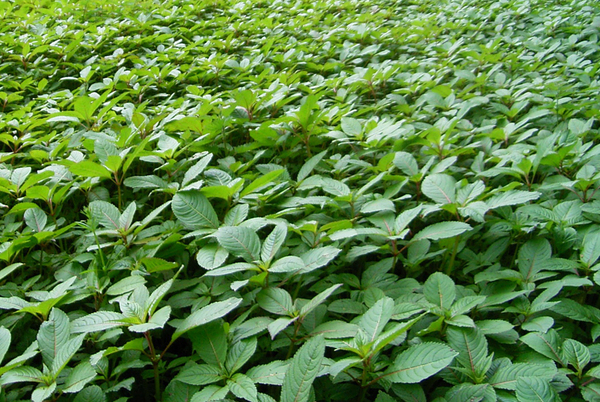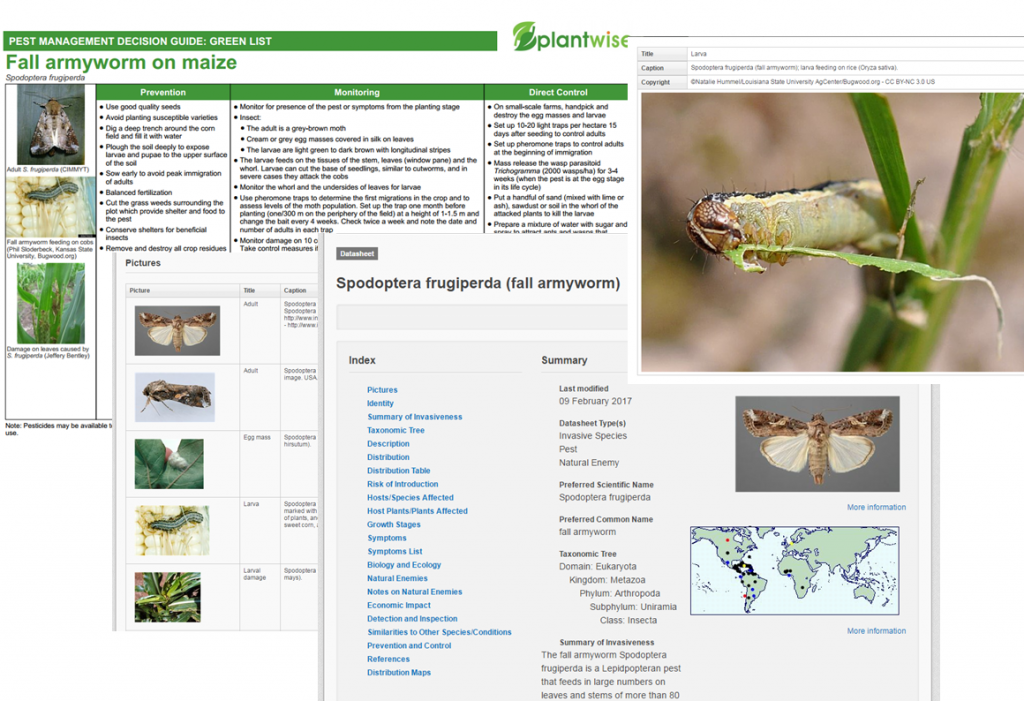Taking on Fall Armyworm in Africa: The search for effective natural enemies
The Fall Armyworm (FAW), Spodoptera frugiperda has emerged as a serious threat to food security for millions of smallholder producers in Africa due to its rapid spread across the continent and extensive damage to staple cereals. At the last count, at least 28 countries were reported to be affected by the pest in Africa.
New report reveals cost of Fall Armyworm to farmers in Africa, provides recommendations for control
CABI has published an ‘evidence note’ report on the invasive Fall Armyworm pest, showing how the caterpillar could cause maize losses costing 12 African countries up to US$6.1 billion per annum, unless control methods are urgently put in place.
A can of worms: fall armyworm invasion in Africa
By CABI’s Roger Day. Reblogged from the Food and Business Knowledge Portal The fall armyworm is still invading regions in Africa. Since 2016 this worm has been spreading across sub-Saharan Africa and has been officially identified in 11 countries. Roger Day from the Centre for Agriculture and Biosciences International (CABI) elaborates on its dangers in this…
Kenya gets new production facility to control crop pest
By Sam Otieno. Reblogged from SciDevNet A facility has been launched in Kenya to aid commercial production of a protein bait to control fruit flies in Sub-Saharan Africa. The US$250,000 facility, which resulted from public-private partnership involving the International Centre of Insect Physiology and Ecology (icipe) and Kenya Biologics Ltd, will enable smallholders control fruit flies that devastate their fruits…
Five invasive pests cost African smallholders $1 billion every year
New research by CABI reveals that just five invasive alien species are causing US$0.9 – 1.1 billion in economic losses to smallholder farmers across six eastern African countries each year, equating to 1.8% – 2.2% of total agricultural GDP for the region. These losses are expected to grow to $1.0 – 1.2 billion per year…
Where to find CABI’s open-access information on fall armyworm
The fall armyworm, Spodoptera frugiperda, is making headlines worldwide for all the wrong reasons. The caterpillar crop pest, native to the Americas, was reported in Africa for the first time last year and is now rapidly marching across the continent. It is a voracious pest of maize and other staple crops and has already destroyed…
Scientists discover new crop-destroying Armyworm is now “spreading rapidly” in Africa
New research announced today by scientists at CABI confirms that a recently introduced crop-destroying armyworm caterpillar is now spreading rapidly across Mainland Africa and could spread to tropical Asia and the Mediterranean in the next few years, becoming a major threat to agricultural trade worldwide.
Pakistan’s papaya pest squished through biocontrol
A severe infestation of the papaya mealybug (Paracoccus marginatus) nearly wiped out papaya orchards in Pakistan before this largely farming South Asian country decided to replace conventional chemical pesticides that were ineffective, with natural predators that proved to be successful.
Invasive species – telling the story of the hidden threat to livelihoods
The Global Forum on Agricultural Research (GFAR) has blogged about CABI’s activities in its ‘Partner Spotlight’ feature (12-15). One of these was our new invasive species programme which is re-posted here. Millions of people living in rural communities around the world face problems with invasive species –animals, diseases, insects and plants – that are out…
Invasive alien species (IAS) threaten livelihoods and biodiversity globally
Invasions from non-native plants, animals and pathogens threaten the economies of the world’s poorest nations, according to a new study. The study, published in Nature Communications (‘Global threats from invasive alien species in the twenty-first century and national response capacities’) found that one-sixth of the world’s land is highly vulnerable to invasion, including substantial areas…


